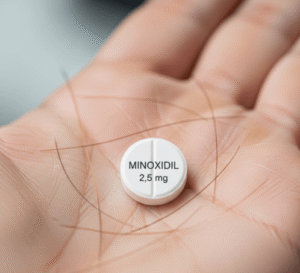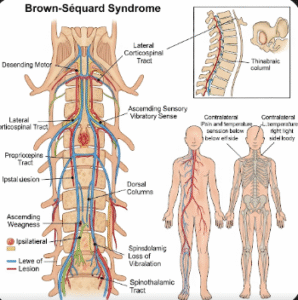As Korean men reach their 40s and 50s, heart health becomes one of the most critical aspects of overall well-being. In this stage of life, responsibilities at work, family pressures, and lifestyle factors often combine to increase the risk of hypertension, high cholesterol, and cardiovascular disease. Heart disease remains one of Korea’s leading causes of death, yet most cases are preventable through early awareness, healthy habits, and modern medical support.
This article explores how middle-aged Korean men can take charge of their cardiovascular health — with science-backed tips, medical insights, and lifestyle strategies tailored to Korea’s culture and environment.
1. Why Heart Health Matters More After 40
As men age, the body’s metabolism slows down, arteries stiffen, and cholesterol levels tend to rise. For many Korean men, long work hours, stress, irregular eating patterns, and high sodium diets also contribute to poor cardiovascular health.
• Rising prevalence: Nearly 1 in 3 Korean men over 40 has some form of high blood pressure.
• Hidden risks: Early stages of heart disease often show no symptoms until a major event like a stroke or heart attack occurs.
• Gender factor: Men develop cardiovascular disease roughly 10 years earlier than women due to hormonal and lifestyle differences.
Important: Regular checkups after age 40 are not optional — they’re essential for detecting problems before they become life-threatening.
2. Common Risk Factors Among Korean Men
Certain lifestyle patterns and cultural habits make middle-aged Korean men particularly vulnerable to heart disease.
• High-sodium diet: Popular foods like kimchi, ramyeon, and salted soups contribute to excessive sodium intake.
• Smoking and alcohol consumption: Korea has one of the highest male smoking rates among OECD countries, and social drinking culture adds additional strain on the heart.
• Work-related stress: Long working hours and mental fatigue increase stress hormones like cortisol, which elevate blood pressure.
• Lack of physical activity: Many men prioritize work over exercise, leading to weight gain and metabolic syndrome.
• Genetic predisposition: Family history of heart disease or diabetes amplifies risks.
Understanding these triggers is the first step toward prevention.
3. Warning Signs You Should Never Ignore
Heart disease can develop silently, but the body often gives subtle early warnings. Recognizing them early can save lives.
• Chest discomfort, tightness, or pressure during exertion.
• Shortness of breath after mild activity.
• Fatigue, dizziness, or irregular heartbeat.
• Swelling in ankles or feet.
• Unexplained sweating, nausea, or anxiety.
Tip: If these symptoms occur frequently, don’t delay — schedule a cardiovascular screening immediately.
4. The Korean Diet and Its Impact on Heart Health
The traditional Korean diet is rich in vegetables, fish, and fermented foods, which can be heart-healthy. However, modern eating habits — such as convenience meals and processed snacks — have altered this balance.
• Too much salt: Excess sodium increases blood pressure and damages artery walls.
• High carbohydrate intake: White rice and noodles can cause blood sugar spikes, increasing the risk of diabetes and heart complications.
• Healthy alternatives: Focus on brown rice, barley, tofu, and fresh produce.
• Fermented foods in moderation: Kimchi and doenjang are beneficial for gut health but should be consumed with reduced salt versions.
• Omega-3 sources: Include mackerel, salmon, and perilla oil to protect the heart.
Smart idea: Replace one processed or fried meal per day with a balanced home-cooked dish of vegetables, lean protein, and whole grains.
5. Medical Screening and Early Detection
Korea’s healthcare system offers comprehensive screening programs that can detect heart disease risk factors early.
• Blood pressure check: Should be performed at least twice a year after age 40.
• Lipid panel: Measures cholesterol and triglyceride levels.
• Blood sugar test: Detects diabetes, which often coexists with heart disease.
• Coronary CT scan or ECG: Recommended for those with family history or symptoms.
• Body composition analysis: Helps evaluate visceral fat and metabolic health.
Note: Many workplaces and national health programs offer subsidized or free heart checkups for employees. Take full advantage of these services.
6. Lifestyle Habits That Strengthen the Heart
Simple daily habits can dramatically improve cardiovascular health and longevity.
• Exercise regularly: At least 150 minutes of moderate activity per week — brisk walking, cycling, or swimming.
• Maintain a healthy weight: Aim for a waist circumference under 90 cm for men.
• Quit smoking: Within one year of quitting, the risk of coronary disease drops by nearly 50%.
• Limit alcohol: Keep intake below 2-3 drinks per week.
• Sleep well: Poor sleep (less than 6 hours) raises the risk of hypertension and heart attack.
• Manage stress: Practice deep breathing, meditation, or engage in hobbies that reduce tension.
Reminder: Consistency matters more than intensity — small, sustainable changes have lasting benefits.
7. Modern Medical Treatments and Innovations
Korean cardiology clinics are adopting cutting-edge methods to detect and treat cardiovascular diseases.
• AI-assisted heart scans: Artificial intelligence helps doctors identify arterial blockages faster and more accurately.
• Minimally invasive stenting: Advanced techniques restore blood flow with less recovery time.
• Preventive cardiology programs: Personalized plans use genetic testing and lifestyle tracking to prevent heart disease before it starts.
• Wearable health devices: Smartwatches and health apps track blood pressure, heart rate, and activity in real time.
These innovations allow middle-aged men to monitor their heart health conveniently and effectively.
8. Mental and Emotional Health Connection
Emotional stress directly affects heart health. Anxiety, depression, and chronic anger increase inflammation and blood pressure. Korean men often suppress emotional strain due to cultural expectations, but mental wellness is just as vital as physical health.
• Seek counseling or therapy for stress management.
• Join community or wellness programs for social support.
• Practice mindfulness, yoga, or breathing exercises daily.
Embracing emotional openness can lower heart disease risks and improve overall quality of life.
9. Workplace Wellness and Corporate Responsibility
Many Korean companies are introducing wellness programs to promote heart health among employees.
• On-site health screenings and fitness challenges encourage regular checkups.
• Healthy cafeteria meals provide low-sodium and balanced options.
• Work-hour flexibility reduces burnout and stress.
These initiatives are creating a new corporate culture focused on preventive healthcare rather than crisis management.
10. The Road Ahead for Men’s Heart Health in Korea
With improved awareness, Korea is witnessing a shift in attitudes toward preventive heart care. Government campaigns and hospitals emphasize lifestyle medicine, and fitness culture is growing among urban professionals.
However, the greatest change must come from individuals — recognizing that health is not just a personal issue but a responsibility to family and community.
Final Thoughts
For middle-aged Korean men, heart health is the cornerstone of vitality and longevity. By making smarter lifestyle choices, embracing preventive care, and using modern medical tools, it’s possible to reverse heart risk and build lasting strength.













